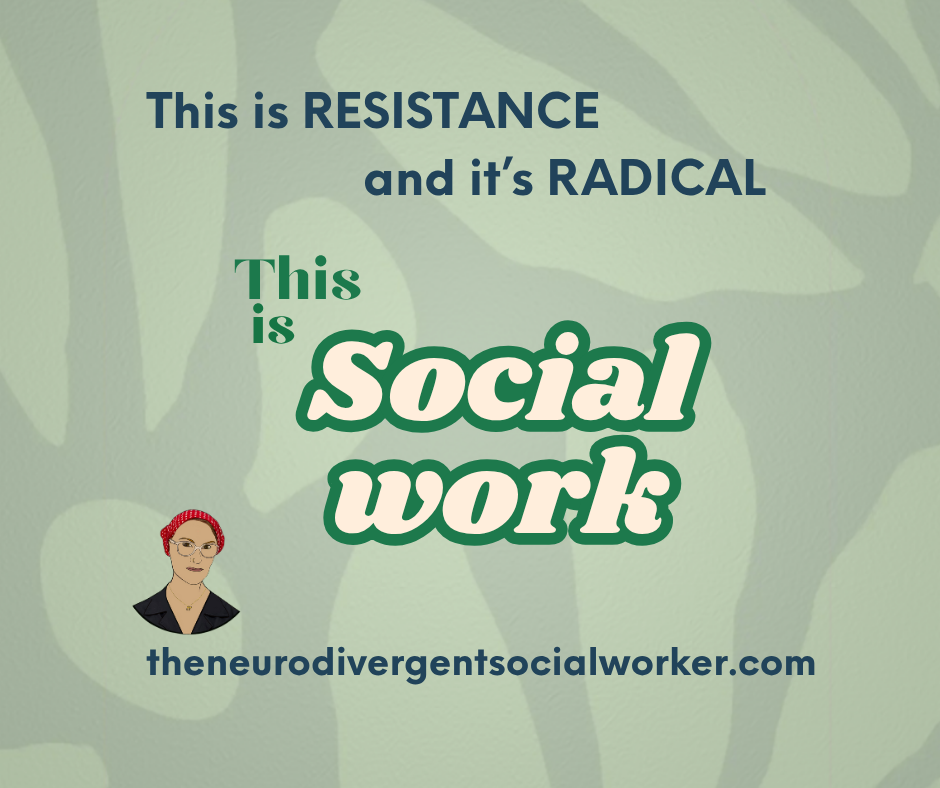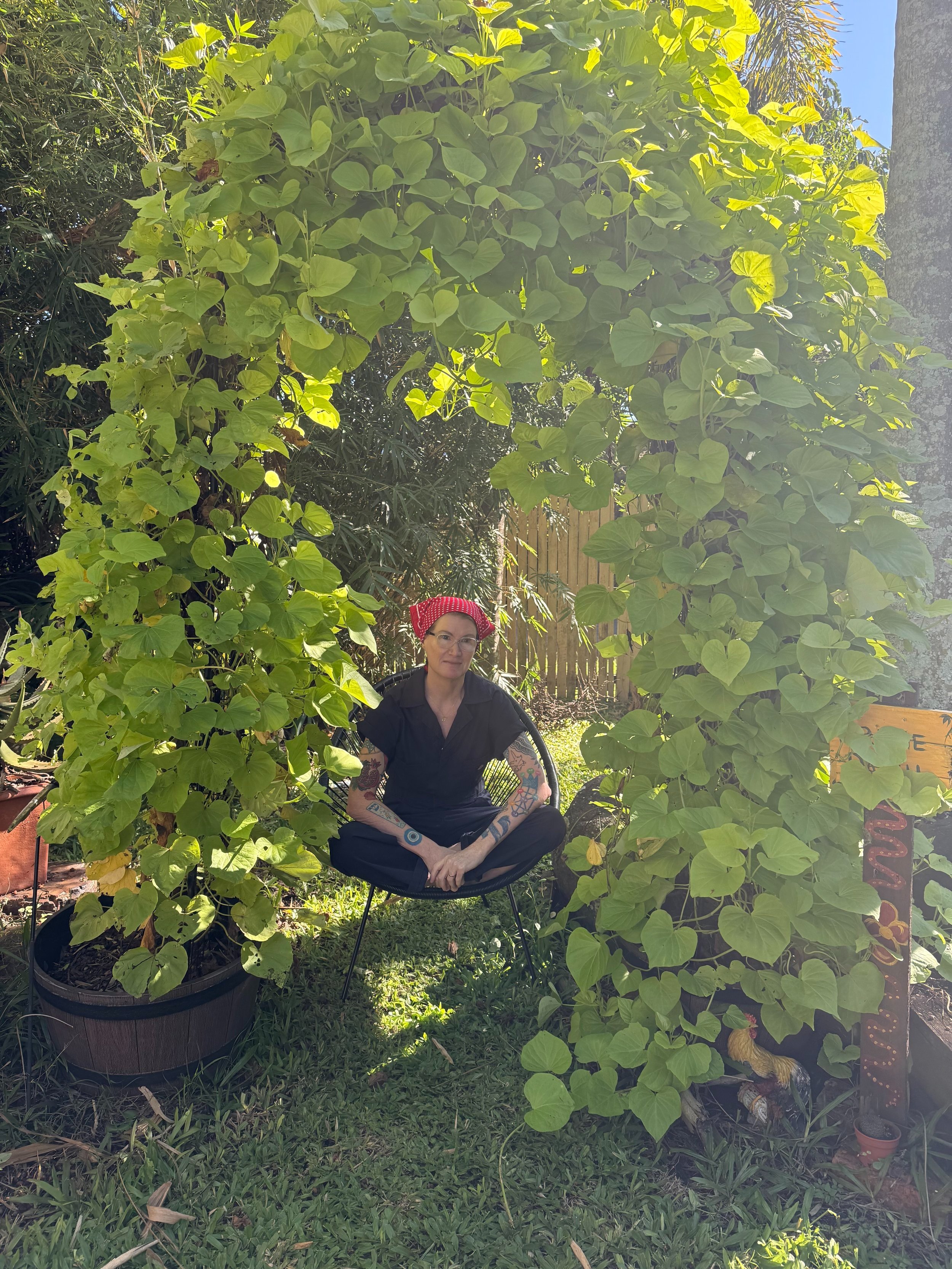
Managing Energy or Managing Us? Spoon Theory and the Corporate Rebrand
Today, Spoon Theory has been gutted, scrubbed, and recoded into something far more palatable to the corporate world. We see it repackaged as ‘energy banking’ or ‘energy accounting’ or ‘energy management’. Why the language of economics? Because our current moment demands that all experiences, even those of chronic illness and disability, be translated into quantifiable, manageable, and productive terms. Economic language offers a familiar, system approved vocabulary that aligns with ideas like efficiency, measurement, productivity, and self-regulation.

Social work is a resistance movement.
Social work is not a neutral profession. It is at its beating heart a resistance movement. In this moment of climate collapse, creeping fascism, and commodified care, we need resistance more than ever.
Let’s take our place in the movement demanding justice and respect for the marginalised, the dispossessed, the colonised. Let’s name the line, push back against it, and alongside the many others fighting for change, force it open.
Because when we do, we remind the world that people are not systems to be managed. They are stories, struggles, and strengths to be honoured.
And that, more than anything, is social work.

When ‘Neuro-Affirming’ becomes Neuro-Washing
Somewhere along the way, ‘neurodiversity-affirming’ became a buzzword. But now the term is showing up on glossy websites, in corporate wellness packages, on therapy directory bios and in school brochures. It’s printed across merchandise and splashed across social media posts by people who’ve never had to control their shaking in a meeting, never spiralled after a sensory overload and never had to translate their very being into something palatable to be allowed in the room.
It’s performative. It’s branding. It’s neuro-washing.

Enough: Why I'm Building a Neurodivergent-Led Practice, and What Comes Next
I want this to be more than just a business. I want it to be a gathering place. A homecoming for all of us who’ve spent too long trying to belong where we were never meant to stay.